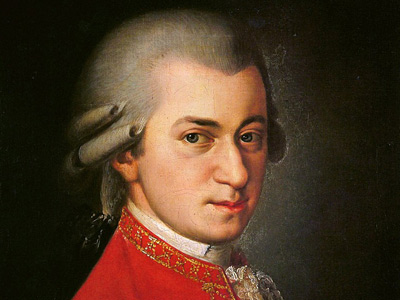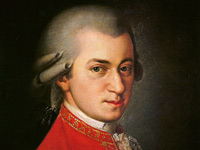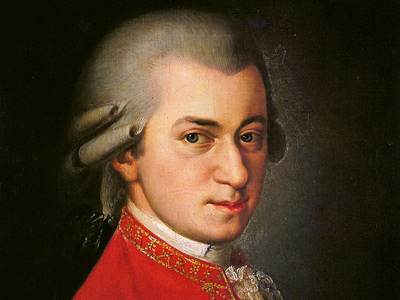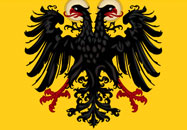Wolfgang Amadeus Mozart (1756-1791)

1786–87: Return to Opera
Despite the great success of Die Entführung aus dem Serail, Mozart did little operatic writing for the next four years, producing only two unfinished works and the one-act Der Schauspieldirektor. He focused instead on his career as a piano soloist and writer of concertos. Around the end of 1785, Mozart moved away from keyboard writing and began his famous operatic collaboration with the librettist Lorenzo Da Ponte. 1786 saw the successful premiere of The Marriage of Figaro in Vienna. Its reception in Prague later in the year was even warmer, and this led to a second collaboration with Da Ponte: the opera Don Giovanni, which premiered in October 1787 to acclaim in Prague, but less success in Vienna in 1788. The two are among Mozart's most important works and are mainstays of the operatic repertoire today, though at their premieres their musical complexity caused difficulty for both listeners and performers. These developments were not witnessed by Mozart's father, who had died on 28 May 1787.
In December 1787, Mozart finally obtained a steady post under aristocratic patronage. Emperor Joseph II appointed him as his "chamber composer", a post that had fallen vacant the previous month on the death of Gluck. It was a part-time appointment, paying just 800 florins per year, and required Mozart only to compose dances for the annual balls in the Redoutensaal. This modest income became important to Mozart when hard times arrived. Court records show that Joseph's aim was to keep the esteemed composer from leaving Vienna in pursuit of better prospects.
In 1787, the young Ludwig van Beethoven spent several weeks in Vienna, hoping to study with Mozart. No reliable records survive to indicate whether the two composers ever met.
HISTORY

RESOURCES
This article uses material from the Wikipedia article "Wolfgang Amadeus Mozart", which is released under the Creative Commons Attribution-Share-Alike License 3.0.
© Stories Preschool. All Rights Reserved.










